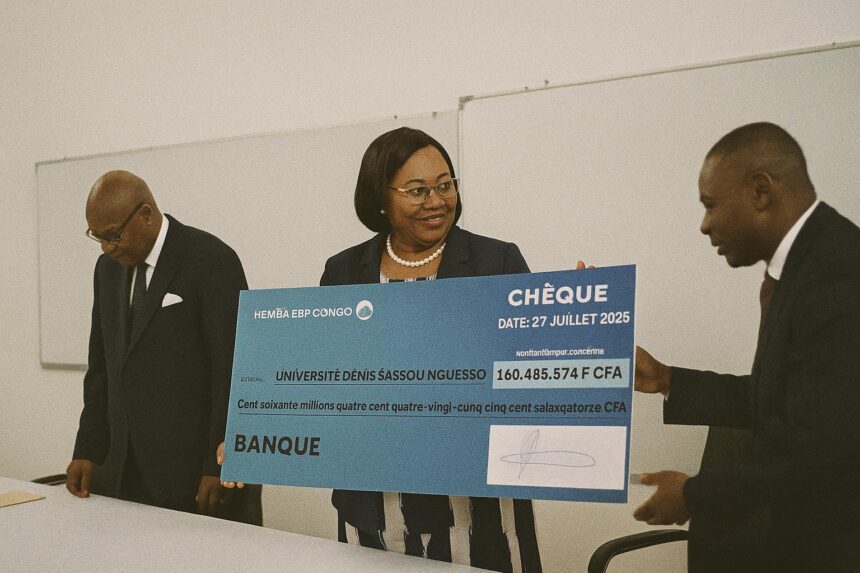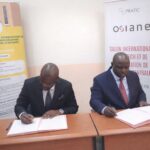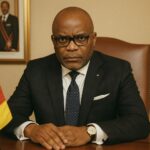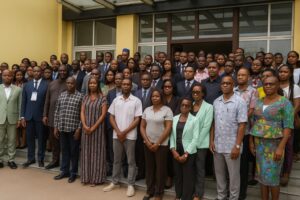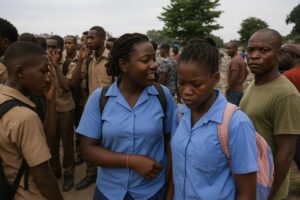A Ceremony Framed by Diplomatic Symbolism
The mid-July handover of a cheque valued at 160 683 674 CFA francs to Denis Sassou Nguesso University unfolded under the high ceilings of the Kintele campus with an almost ceremonial choreography. Ministers of Higher Education and Hydrocarbons, senior diplomats and the management of Hemla E&P Congo shared the dais, foregrounding the convergence of academia, industry and statecraft. While the amount represents a fraction of annual public-investment envelopes, the gesture’s resonance lies in its timing: it arrives as Brazzaville seeks to project an image of resilient governance and purposeful modernisation despite headwinds in global commodity prices.
- A Ceremony Framed by Diplomatic Symbolism
- CSR Meets Local-Content Law
- Laboratory Upgrades and Pedagogical Transformation
- Strategic Stakes for Brazzaville
- Balancing Expectations and Structural Realities
- Soft-Power Dividends for Corporate and State Actors
- Prospects for a Replicable Model
- An Incremental Yet Symbolic Leap Forward
CSR Meets Local-Content Law
The donation is explicitly tethered to the 2016 local-content regulations that oblige energy operators to reinvest part of their turnover in national capacity-building. Hemla E&P Congo’s administrator Abime Laurier described the cheque as a “sincere contribution to human-capital reinforcement” (Hemla E&P statement, July 2025). By channelling funds through the university rather than traditional social projects, the firm aligns with the Ministry of Hydrocarbons’ recent communiqué encouraging operators to privilege knowledge transfer over short-term charity (Ministry communiqué, June 2025).
Laboratory Upgrades and Pedagogical Transformation
Professor Ange Antoine Abena, the university’s president, enumerated an inventory that includes digital microscopes, geospatial testing rigs and tensile-strength machines. Such equipment is expected to enhance the fledgling Faculty of Applied Sciences and the Institute of Geographical, Environmental and Planning Sciences, institutions established only three years ago yet already enrolling over 1 800 students. Teaching staff argue that the instruments will shift pedagogy from theoretical exposition toward experimental empiricism, a transition long prescribed by UNESCO’s regional science reports.
Strategic Stakes for Brazzaville
For the central government, the partnership dovetails with the National Development Plan 2022-2026, which foregrounds ‘knowledge corridors’ linking universities to strategic industries. Minister Bruno Jean Richard Itoua’s invitation to other petroleum operators echoes earlier calls voiced at the African Petroleum Producers’ Organisation summit in Luanda, where Congo-Brazzaville advocated a continental pact on skills localisation. The ability to showcase a functioning case study at Kintele thereby becomes a diplomatic asset in regional fora.
Balancing Expectations and Structural Realities
Observers caution that a one-off infusion, however welcome, will not by itself resolve recurrent sectoral challenges such as staff retention, electricity reliability and maintenance budgets. The World Bank’s 2023 Higher Education Diagnostic for Central Africa highlighted that laboratory obsolescence often re-emerges within five years if recurrent funding is absent. University officials nevertheless point to a Memorandum of Understanding under negotiation with Hemla E&P that envisages joint research programmes and annual internships—mechanisms designed to ensure continuity rather than episodic largesse.
Soft-Power Dividends for Corporate and State Actors
From a corporate-diplomacy standpoint, the endowment affords Hemla E&P Congo reputational capital at a moment when environmental-social-governance benchmarks increasingly influence licensing rounds. International investors scrutinising Congo’s upcoming offshore block auctions will note the operator’s proactive stance in community engagement. Simultaneously, Brazzaville can cite the initiative in dialogues with multilateral creditors to demonstrate alignment with Sustainable Development Goal 4 on quality education, thereby strengthening its case for concessional financing.
Prospects for a Replicable Model
Stakeholders interviewed in Pointe-Noire and Brazzaville converge on the assessment that the Kintele blueprint could be scaled nationally. The Ministry of Higher Education is reportedly drafting guidelines to harmonise corporate contributions with curricula objectives, a move inspired by models observed in Ghana and Qatar, where hydrocarbon revenues underwrite university research clusters (UNESCO science report, 2021). Should such guidelines crystallise, Congo-Brazzaville may position itself as a sub-regional pioneer in leveraging extractive revenues for academic excellence.
An Incremental Yet Symbolic Leap Forward
As the assembled dignitaries dispersed and laboratory procurement orders commenced, the event’s symbolism lingered: a petroleum-sector cheque as a passport to scientific modernity. While the true test will lie in sustained investment, faculty feedback and student outcomes over the next academic cycles, the ceremony has already recalibrated expectations about how corporate social responsibility can intersect with state educational strategy. In a region where narratives around oil often oscillate between boom and contention, the Kintele episode offers a nuanced vignette of pragmatic synergy rather than zero-sum trade-offs.

